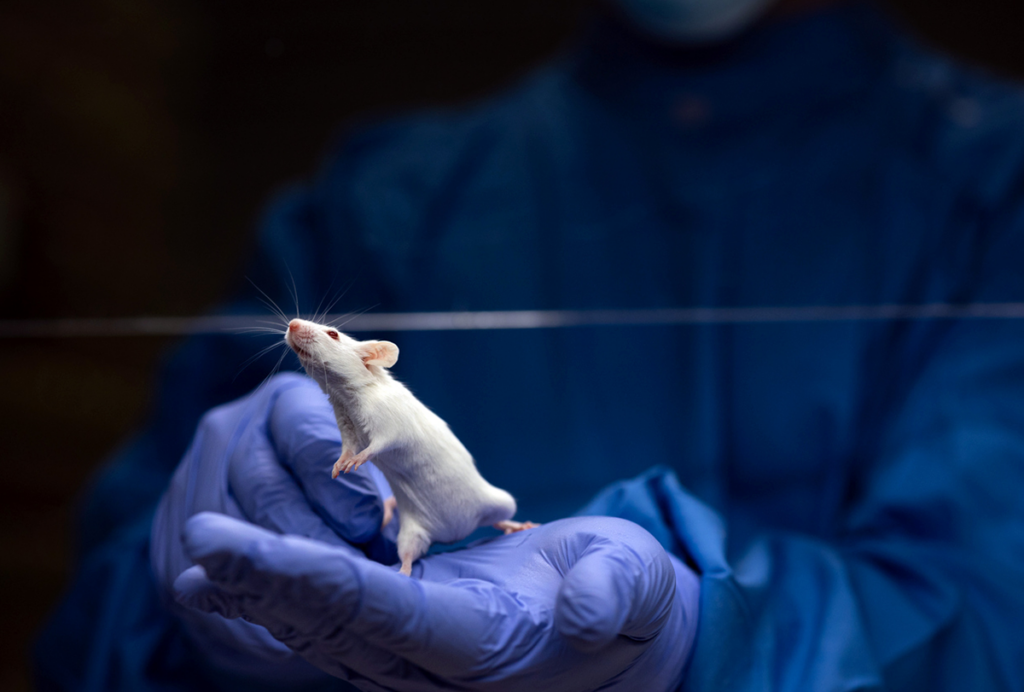Immune disorders during pregnancy boost autism risk in children
Women who have lupus are roughly twice as likely as women without an immune disorder to have a child with autism.
Women who have lupus, a disorder in which the body’s immune system attacks its own cells, are roughly twice as likely as women without an immune disorder to have a child with autism1.
The study is not the first to link lupus to autism risk, but it is by far the largest and most rigorous.
“Women with lupus want to know how the disease will affect the long-term health of their children: This is one piece of the puzzle,” says lead researcher Evelyne Vinet, assistant professor of rheumatology at McGill University in Montreal. “But the absolute risk is still very small.”
A second report analyzed data from 10 studies and found that women with an autoimmune disorder have a 34 percent elevated risk of having a child with autism2.
Together, the findings add to a convincing body of evidence linking a heightened immune response in pregnant women to an increased risk of autism in their children, says Judy Van de Water, professor of clinical immunology at the University of California, Davis. In her clinic, Van de Water says, she often sees children affected by multiple disorders that stem from an overactive immune system, ranging from type 1 diabetes to arthritis. In many of those cases, the sibling of the child with an autoimmune disorder has autism.
Epidemiological studies have hinted that serious infections during pregnancy, such as influenza, raise the risk of having a child with autism. But most women who get the flu while pregnant don’t have a child with autism, suggesting that the small proportion of women who do may have mounted an abnormal immune response. “This all goes back to the idea that immune dysregulation may be more important to the pathology of autism than we thought originally,” Van de Water says.
Lupus link:
In the first study, published 28 August in Arthritis and Rheumatology, Vinet and her colleagues looked at a registry of all women with lupus in Quebec, Canada, who gave birth to at least one child in a hospital between 1989 and 2009. They then matched each of these 509 women with at least four controls of the same age who gave birth in the same year.
Of the 719 children who have mothers with lupus, 10 — or 1.4 percent — have autism. By contrast, the 5,824 controls have 8,493 children, and 53 — or 0.6 percent — of these children have autism.
The study suggests that in the women with lupus, it’s the condition itself, rather than medications they may take to treat it, that is linked to their children’s autism.
Lupus is characterized by a range of symptoms, including fever, joint and muscle pain, and fatigue. Doctors often treat the disorder with antimalarial drugs or those that suppress the immune system, such as corticosteroids.
“With people who are sick, especially if they are on medications, there are other factors that might alter the pregnancy outcome,” notes Betty Diamond, head of the Center for Autoimmune and Musculoskeletal Disorders at the Feinstein Institute for Medical Research in Manhasset, New York.
However, the researchers only had information on medication use for 155 children of women with lupus and 1,770 children born to controls. Only 18 of these children have autism, and only 2 were born to women who have lupus. Still, none of the mothers of children with autism had taken antimalarials, antidepressants or immunosuppressants while pregnant.
This finding suggests that autism risk is not related to these medications, but it needs to be confirmed in greater numbers of women, says Vinet.
Crossing over:
The second study, published 30 August in Behavioral Brain Research, also bolsters the idea that it’s an elevated immune response during pregnancy that raises autism risk. Researchers pooled the data from 10 studies, totaling nearly 10,000 children with autism and nearly 1 million controls.
They found that women with autoimmune thyroid disease are 29 percent more likely than those without thyroid problems to have a child with autism. Small studies have shown a similar increased risk for women who have other autoimmune disorders, such as rheumatoid arthritis, celiac disease or type 1 diabetes.
Overall, evidence suggests that immune disorders themselves — not their treatments or symptoms — lead to autism, Diamond says. She and her colleagues have found that mothers of children with autism produce antibodies that react with brain proteins. These antibodies might be able to cross the placenta, where they could affect the fetal brain.
Van de Water and her colleagues have uncovered evidence that immune chemicals called cytokines, which are elevated in autoimmune disorders, may also build up in the placenta.
To tease out the role of the maternal immune response in autism risk, researchers have relied on mice and monkeys exposed to mock viruses or antibodies during pregnancy. These animal studies suggest that exposure to immune molecules or antibodies in the womb alters behavior later in life.
Once scientists identify the immune components that may contribute to autism, they may better understand how to lower the risk from an infection or autoimmune condition. “If we understand the underlying mechanisms, hopefully we can do something to put the trajectory back on track,” Van de Water says.
References:
Recommended reading

New organoid atlas unveils four neurodevelopmental signatures

Glutamate receptors, mRNA transcripts and SYNGAP1; and more

Among brain changes studied in autism, spotlight shifts to subcortex
Explore more from The Transmitter

Psychedelics research in rodents has a behavior problem
Can neuroscientists decode memories solely from a map of synaptic connections?
